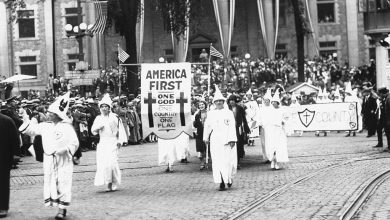Hospitalized as Progressive Supranuclear Palsy Worsens

Civil‑rights veteran Rev. Jesse Jackson, 84, was admitted to a Washington, D.C., hospital Wednesday night for observation and treatment of progressive supranuclear palsy (PSP), a rare neurodegenerative disorder that impairs balance, eye movement and gait. The Rainbow PUSH Coalition, the organization Jackson founded in the 1970s, confirmed the hospitalization in a brief statement, adding that the activist’s family “appreciates all prayers at this time.”
A decade‑long battle with a misunderstood illness
Jackson first disclosed a Parkinson’s diagnosis in 2017, describing the news as “painful” and a signal to intensify his physical‑therapy regimen. In April 2024, doctors revised the diagnosis, confirming PSP—a condition that, while sharing some tremor‑related symptoms with Parkinson’s, stems from damage to brainstem neurons that coordinate movement and cognition. According to the National Institute of Neurological Disorders and Stroke, PSP typically manifests in a person’s 60s and often leads to severe disability within three to five years.
Jackson’s medical team has not clarified whether he continues to manage both Parkinson’s and PSP or if the latter has wholly supplanted the former. What is clear, however, is that the disease has progressed enough to warrant close monitoring of his blood pressure and mobility, prompting the current admission.
Recent health setbacks
The PSP diagnosis follows a string of serious health events over the past four years. In early 2021, Jackson underwent gallbladder surgery and, weeks later, was hospitalized with COVID‑19 alongside his wife, Jacqueline. Later that year, a fall at a Howard University gathering resulted in a head injury that required additional observation. Most recently, in late October, clinicians intervened to stabilize a precipitous drop in his blood pressure, administering medication that, according to family sources, acted as a temporary form of life support.
Within the past 24 hours, nurses report that Jackson has been breathing unaided and that his blood pressure has steadied without pharmacologic assistance, marking a modest but encouraging improvement.
A lifetime of advocacy
Born in 1941 in Greenville, South Carolina, Jackson entered the civil‑rights arena as a student activist at North Carolina A&T, leading a 1960 sit‑in that forced the desegregation of the city’s public library. After Dr. Martin Luther King Jr. appointed him director of Operation Breadbasket in Chicago (1966), Jackson helped channel corporate contracts into Black neighborhoods, laying groundwork for the People United to Save Humanity (PUSH) organization.
In 1996, PUSH merged with the National Rainbow Coalition to become the Rainbow PUSH Coalition, a national network focused on economic empowerment, voter registration and youth education. Jackson’s presidential bids in 1984 and 1988, though unsuccessful, demonstrated that a Black candidate with progressive values could compete on a national stage. He later served as Washington, D.C.’s shadow senator (1991‑1997) and received the Presidential Medal of Freedom from Bill Clinton in 2000.
Family and supporters rally
Jackson’s son, Rev. Jesse Jackson Jr., posted on social media that his father “called for 2,000 churches to prepare 2,000 baskets of food to prevent malnutrition during the holiday season,” underscoring the elder Jackson’s persistent concern for community welfare even while hospitalized. The Rainbow PUSH Coalition’s statement emphasized gratitude for the “outpouring of prayers and messages of love” from activists, elected officials and ordinary citizens.
Looking ahead
Doctors have not provided a definitive prognosis, but PSP is generally progressive, with most patients experiencing marked functional decline within a few years. Nonetheless, the recent stabilization of Jackson’s vital signs suggests that intensive supportive care is still effective in managing acute episodes.
As the nation watches a figure who has spent six decades championing voting rights, economic justice and racial equality, many are reminded of Jackson’s own mantra: “Keep hope alive.” Whether he emerges from this hospitalization stronger or weaker, his legacy of mobilizing grassroots movements and demanding accountability from the political establishment remains indelible.




